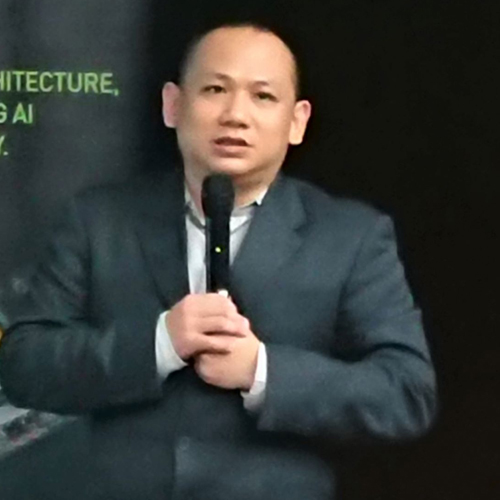
- 11 月 16 日 星期二
- 13:30 - 14:00
- 1F 101 A
維運台灣 AI 雲 (TWCC) 的心路歷程 - 從建置到滿載
混合雲是目前企業 IT 服務的發展方向,然而建置雲端服務平台與維運雲服務是兩種截然不同的工作型態。建置雲端服務平台需要依用戶需求進行規劃,除了常見的 IaaS、PaaS、SaaS 各層級間的不同功能串接外,亦需要詳細盤點對企業應用有實質幫忙的服務內容,以利收得短期成效。維運雲服務則是需嚴守維運紀律,除了持續推動服務的 DevOps 流程外,亦需讓工程及開發團隊能依循現有建置服務基礎,不斷打造可滿足用戶需求的新功能、新服務。
在過去建置維運 TWCC (臺灣 AI 雲) 的經驗中,從建置近 2000 顆的 V100 GPU 集群到服務上線,再到 GPU 服務(近)滿載 (98%,即1960顆 V100),台灣智慧雲端服務 (TWS) 團隊持續將最好的 IT Service 提供給國人,讓世界前20名的超級電腦可以協助產官學研各界的需求。
本次會議中會說明:
[1] TWCC 如何驗證可以滿足大規模的人工智慧服務佈署(內容已經在 AIA 人工智慧學校說明過)
[2] 說明 TWCC 軟體服務架構及其設計原由
[3] 如何確保公有雲能持續服務持續更新,並確保高複雜度的新服務能順利上到 Production 站中
- 中階
- Multi-Cloud Management
- Next Generation Data Center
- SRE

August Chao currently serves as Chief Engineer at TWS (Taiwan Web Service Company). Aug's most notable work is design workflow, service and mechanize for Taiwanina II (Top 20 in Top-500 supercomputer) and TWCC (Taiwan Computing Cloud). TWCC helps many new AI start-up companies and digital transformation for public and private sectors. Prior to his work in NARLabs and ITRI, his contributions in deep learning algorithms and services in NLP fields (TWI649712B(2019-02-01), US20190180190A1, CN109903115A), designing AI-HPC infrastructures (US 17/109,657, P097-2011402TW, patent pending) and confidential computing over cloud (US 17/108,329, P096-2011401TW, patent pending). He is currently also an industrial mentor (assistant professor) at NPU.